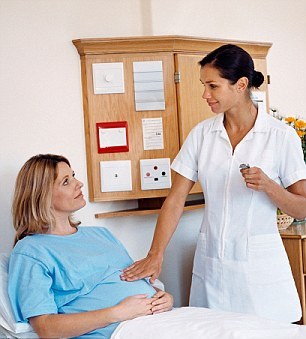Streptococcus Group B is one of the last tests your OB or midwife will order during your pregnancy. As part of routine prenatal testing, this test is performed in the third trimester.
GBS, or Group B Streptococcus, refers to a type of bacteria. Approximately 25% of women are carriers of GBS. Although typically harmless in adults, this bacterial infection can cause newborns to become very ill. According to the CDC, group B strep is the leading cause of meningitis and sepsis in a newborn’s first week of life. It’s routine for healthcare professionals to proactively test for GBS before a woman goes into labor as the bacteria can be transferred from mother to baby as the baby travels through and exists the birth canal.
What Can I Expect During a GBS Screening?
A streptococcus group b screening is a non-invasive procedure. Sometime between the 35th and 37th weeks, your doctor or midwife will take a swab and swipe your vaginal and anal areas, where the bacteria live. The swab will then be placed in a sterile tube and sent to a lab for testing. The testing is simple and results should be returned within two hours. Your doctor or midwife may call with the results or wait until your next appointment to review them with you.
How Can I Treat GBS?
There are no vaccines to treat GBS; the best treatment is to be proactive. If you test positive for GBS, your doctor or midwife will recommend giving you IV antibiotics when you go into labor. Although penicillin is the mostly commonly administered antibiotic, there are others available. These antibiotics work to protect your baby as he or she is exposed to the GBS while exiting the body. It’s important to know that not all babies whose mothers test positive for GBS will become sick. The antibiotics are given as a preventative measure to decrease the risk of infection. Current data suggests that about 1 out of every 200 babies develop symptoms of GBS disease if their mothers do not receive antibiotics. According to the CDC, a woman who tests positive and receives intravenous antibiotics during labor reduces the risk of delivering a baby with GBC to 1 in 4,000. For more facts about streptococcus group b, you can visit their page at the link above.
As far as prenatal testing goes, the Group B Strep test is both non-invasive and reliable. It will provide you with important information that can help you protect the health of your baby. There are no risks to having the test done. The only reported risks are the very rare occurrence of a negative reaction to IV antibiotics. If you do test positive for Group B Strep, it’s always best to discuss your options with your healthcare provider.
[lamoud_Pregnancy_Calculator]My content[lamoud_Pregnancy_Calculator]





